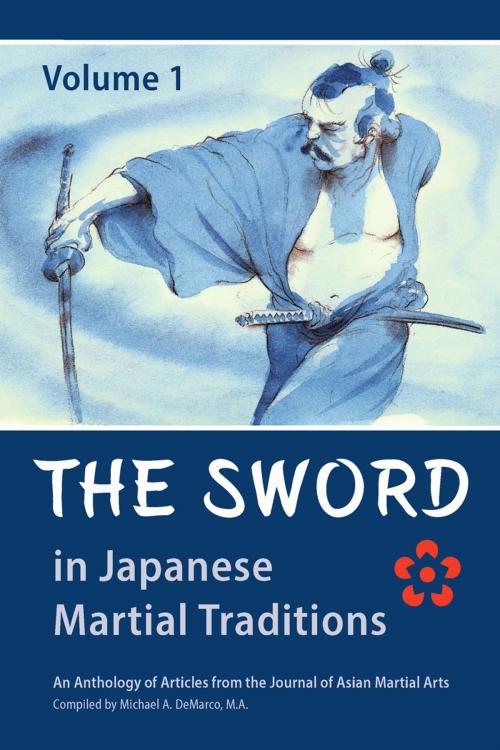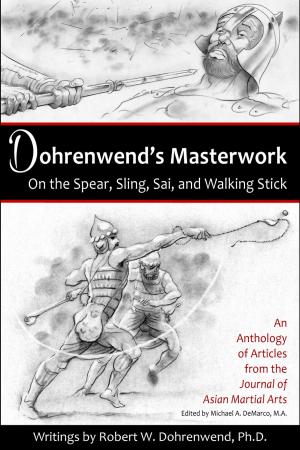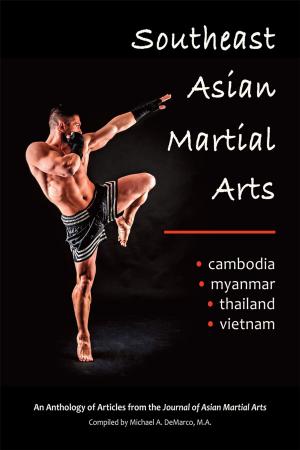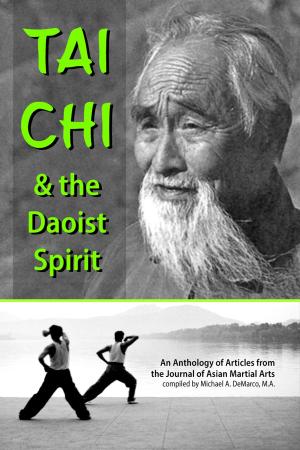The Sword in Japanese Martial Traditions, Vol. 1
Nonfiction, History, Asian, Japan, Sports, Martial Arts & Self Defence| Author: | Kimberly Taylor, Jonathan Seckler, Nicklaus Suino, Goyo Ohmi | ISBN: | 1230002046020 |
| Publisher: | Via Media Publishing | Publication: | December 12, 2017 |
| Imprint: | Language: | English |
| Author: | Kimberly Taylor, Jonathan Seckler, Nicklaus Suino, Goyo Ohmi |
| ISBN: | 1230002046020 |
| Publisher: | Via Media Publishing |
| Publication: | December 12, 2017 |
| Imprint: | |
| Language: | English |
If the Way of the warrior is the soul of Japan, their magnificent swords were the tools utilized to form the nation and forge their spirit. You’ll find an abundance of information in this special two-part digital anthology in support of this thesis.
**Kimberly Taylor** wrote four chapters, the first being an interview with 7th-dan Matsuo Haruna. Haruna offers great advice for practitioners based on his firsthand experience. Taylor’s two highly researched chapters give overviews of two major iaido schools. Excellent photos and descriptions of katas accompany the text. Taylor’s finale is a short piece describing two of his favorite techniques, while Deborah Klens-Bigman’s chapter deals with two of her favorite techniques.
Another top ranking swordsman, Nicklaus Suino, gets to the finicky details of sword-drawing techniques as performed by masters. From his two chapters, we learn how to watch for telltale signs of expertise and come to a greater appreciation of the art of drawing the sword.
Jonathan Seckler’s chapter translates and comments on an essay written by Chozanshi Shissai in 1729. He argues that Neo-Confucianism rather than Zen became the foundation of swordsmanship, and illustrates how the sword arts began to be appreciated for their use for self-development.
**Andrew Bryant’s** chapter focuses on poems passed down within the Muso Jikiden Eishin-ryu School of Iaido. These poems correspond to techniques contained within the system created in the 17th century. The author presents each poem and offers provides textual descriptions of their corresponding applications with each sword technique illustrated.
**Joseph Svinth’s** research presents the earliest kendo clubs to form in Canada. The socio-cultural settings add much flavor to this chapter. Information is provided regarding notable instructors, training, and competitions. Another way to better understand a martial tradition of one country is to compare it with another. Matthew Galas compares and contrasts sword arts in Germany with the Japanese traditions. The focus is on general principles and combat philosophy.
Devotees to sword practice are well award that scabbards get damaged. Michael Babin’s chapter shows “how to” build a serviceable scabbard according talents of anyone moderately handy with tools.
The twelve chapters described above should inspire further research and practice in the Japanese sword arts, plus bring a greater appreciation for their unique place in world history and culture.
If the Way of the warrior is the soul of Japan, their magnificent swords were the tools utilized to form the nation and forge their spirit. You’ll find an abundance of information in this special two-part digital anthology in support of this thesis.
**Kimberly Taylor** wrote four chapters, the first being an interview with 7th-dan Matsuo Haruna. Haruna offers great advice for practitioners based on his firsthand experience. Taylor’s two highly researched chapters give overviews of two major iaido schools. Excellent photos and descriptions of katas accompany the text. Taylor’s finale is a short piece describing two of his favorite techniques, while Deborah Klens-Bigman’s chapter deals with two of her favorite techniques.
Another top ranking swordsman, Nicklaus Suino, gets to the finicky details of sword-drawing techniques as performed by masters. From his two chapters, we learn how to watch for telltale signs of expertise and come to a greater appreciation of the art of drawing the sword.
Jonathan Seckler’s chapter translates and comments on an essay written by Chozanshi Shissai in 1729. He argues that Neo-Confucianism rather than Zen became the foundation of swordsmanship, and illustrates how the sword arts began to be appreciated for their use for self-development.
**Andrew Bryant’s** chapter focuses on poems passed down within the Muso Jikiden Eishin-ryu School of Iaido. These poems correspond to techniques contained within the system created in the 17th century. The author presents each poem and offers provides textual descriptions of their corresponding applications with each sword technique illustrated.
**Joseph Svinth’s** research presents the earliest kendo clubs to form in Canada. The socio-cultural settings add much flavor to this chapter. Information is provided regarding notable instructors, training, and competitions. Another way to better understand a martial tradition of one country is to compare it with another. Matthew Galas compares and contrasts sword arts in Germany with the Japanese traditions. The focus is on general principles and combat philosophy.
Devotees to sword practice are well award that scabbards get damaged. Michael Babin’s chapter shows “how to” build a serviceable scabbard according talents of anyone moderately handy with tools.
The twelve chapters described above should inspire further research and practice in the Japanese sword arts, plus bring a greater appreciation for their unique place in world history and culture.















